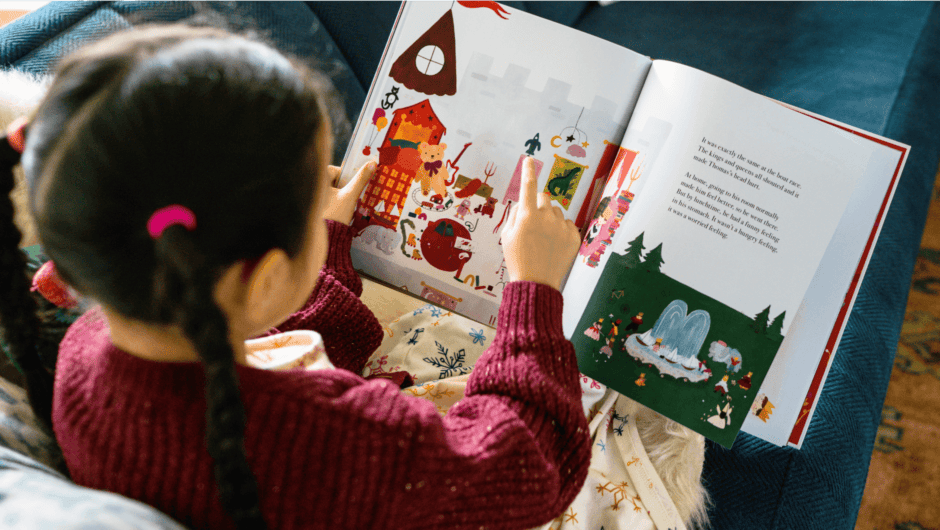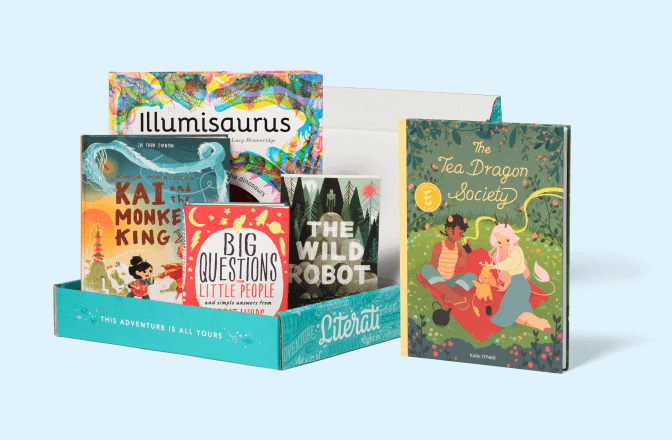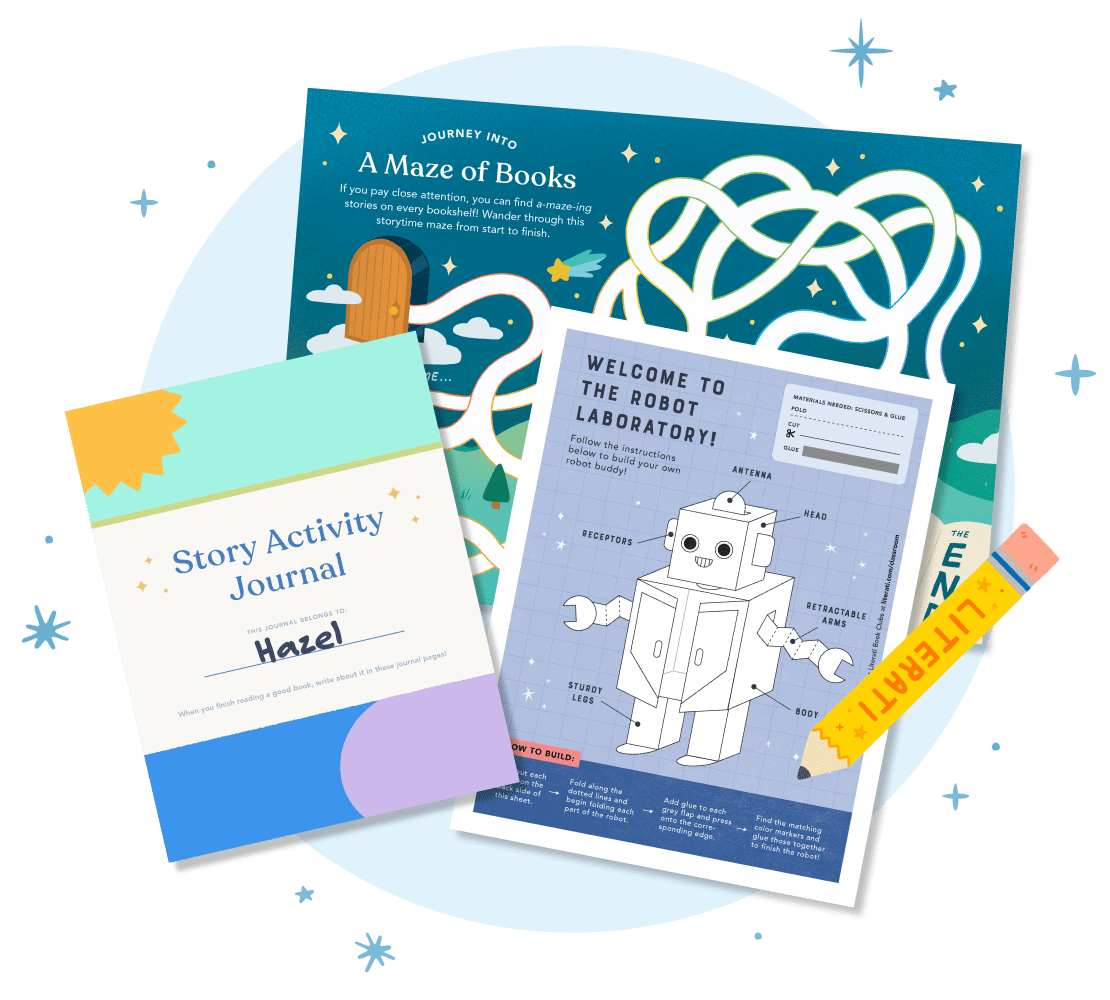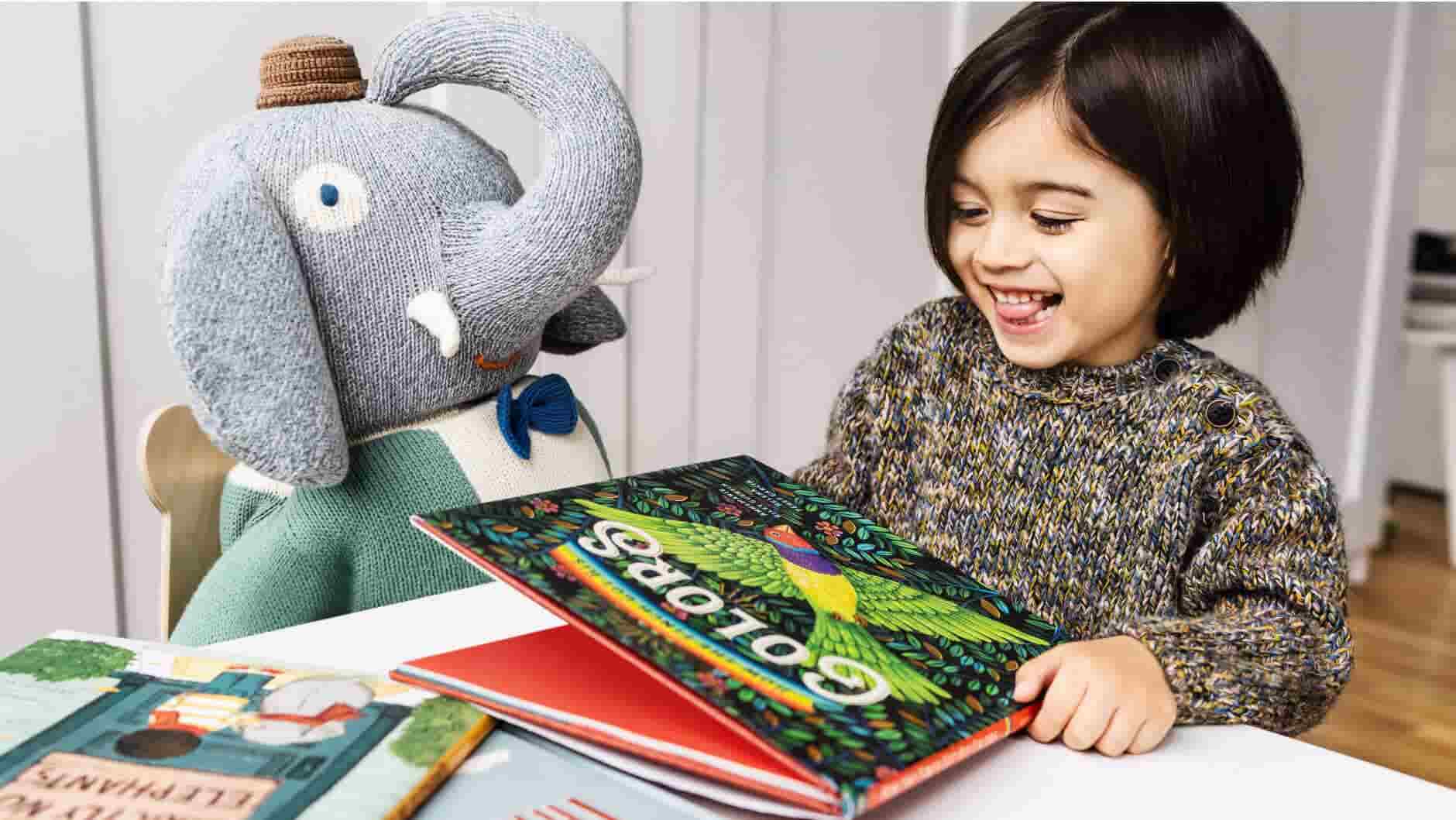If your child is struggling to develop reading and language skills, it could be a sign of a disorder like dyslexia. But there are methods and resources available to help them overcome these challenges.

The Case of the Missing Carrot Cake
We spoke with Jordan Boyce, licensed dyslexia therapist and certified academic language therapist from Boyce Literacy Services, about the possible indicators of such disorders and the ways you can help instill a love of reading even in children experiencing difficulties.
Literati:
What are reading and writing language disorders and how common are they?
Jordan:
Written language disorders are pretty common. There are different statistics: some say anywhere from 10–15% of the population; some say as high as 30–40% of the population. I think that’s a little high. I think 20% is a pretty good estimate.
A lot of people think that reading disorders are visual, but they’re not at all. They’re actually language-based disorders that are neurobiologic in origin. People think that, “Oh, they’re flipping their letters and get their ‘B’ and ‘D’ backwards.” While that can be a sign for a reading or written language disorder, that’s not visual; that’s actually language-based.
I think that’s why a lot of times it goes undetected; outsiders might not necessarily see that in the individual who’s having that difficulty. And I think that a lot of schools aren’t necessarily teaching kids in the way that they need to be taught how to read.
Literati:
What are some of the signs that your child might be struggling with a reading disorder? I know you mentioned that it’s not necessarily visual, but what can parents look out for?
Jordan:
You can see signs from really early on, even in a toddler. So if I say a word and I ask my toddler who can speak to repeat it back, they might have difficulty. They may have already forgotten the word or they may mix up the syllables or mix up the sounds or say it backwards.
When they’re in the older preschool years, they have difficulty naming letters. Then getting into kindergarten and first grade, some of the signs might be difficulty segmenting or isolating sounds in words or identifying the first or last sound in the word.
And then as they get into the later elementary ages, they’re starting to do more reading and writing in school. If they’re having trouble with the writing workload, having difficulty getting their thoughts on paper, or not able to focus on things like grammar—all those things can be signs. It doesn’t necessarily mean that they have a learning disability, but if they show two or three of those red flags, I would definitely start to be concerned.
Literati:
How can a parent who might be concerned tell if it’s just the everyday struggle of learning to read versus having something like dyslexia that needs intervention?
Jordan:
Even doing this as my profession, I struggle with this with my own child. I think… if they show just one of those red flags, then help support them with that one difficulty they’re having.
For example, rhyming is a big one. If they’re having difficulty with rhyming words and knowing if words rhyme or not, but if they’re not having any other difficulties, then just practice that casually in your home.
See if they’re able to get it. Mention it to the child’s teacher. See if they can work on that at school. And if they’re still struggling after working on it a little bit, then you might talk to your child’s teacher about getting some extra support outside of the classroom.
If they’re still struggling in those areas, then consider talking to a professional about whether or not you should seek out an evaluation.
Literati:
Is it possible for kids to grow out of dyslexia or other reading disorders? Are these issues that can be managed over time?
Jordan:
You cannot grow out of dyslexia once you are diagnosed with it. You’re born with dyslexia because it’s neurobiological in origin. So you will always have it.
Thankfully, people with dyslexia are extremely, extremely bright. It’s just one small part of their brain. If you’re able to get the correct intervention with high frequency—the earlier the better—oftentimes, people will never even know that they have dyslexia.
So, the outlook is very good. There’s so much more knowledge and awareness now that more individuals are being identified and earlier than they used to be.
Literati:
What can parents do to support a child who may be struggling with dyslexia?
Jordan:
You want to read to your children a lot. You want them to enjoy reading. I tell a lot of my students’ parents that I want the children to be reading books and stories that not only make them feel successful, but that also allow them to use the skills that they’ve learned. So, I don’t want them reading books that are too advanced for them. I want them to be using books that have a lot of words that the child is able to sound out. Sometimes they might feel a little bit babyish to the child depending on the age. But it’s so important for them to be able to use their skills to increase their fluency. It gives them confidence because they’re successful.
Parents should also be reading more advanced books to the child. Depending on the age, that might be picture books or it could mean chapter books, but you want the child to be exposed to rich vocabulary.
This is the big one: If they have dyslexia, tell them they have dyslexia, because you don’t want them to go around thinking that something’s wrong with them. I like to tell my students that we all have connections in our brain and our brains are all different. So the strong connections in my brain might be different from the strong connections in your brain. So that’s why some of us are really good artists and others are really good at reading and others are great at sports.
Having that open dialogue—making them aware that they have this thing called dyslexia or whatever learning disability they may have—helps them to understand that it’s not a bad thing. It just makes them different and unique.
Thanks to our discussion with Jordan Boyce, here’s what we’ve learned about reading disorders and how to support a child who might be dealing with one:
- Reading disorders are language-based, not visual
- Reading disorders are fairly common
- Concerned parents should be on the lookout for these signs:
- Difficulty repeating words back
- Mixing up words, syllables, and sounds
- Struggling to name letters or isolate sounds
- Trouble with rhyming
- Problems writing (for those old enough)
- Consider a professional consultation if a child shows several of these signs, but a single difficulty can be worked on casually at home
- Let kids practice skills independently using books you know they can handle; read more advanced books to them to boost vocabulary
- Encourage reading engagement by creating incentives and asking thought-provoking questions during shared storytelling
Explore Literati Book Clubs for elementary school students ages 6-11 with book boxes at our Voyager, Navigator, and Aviator levels, as well as educational resources for parents.







